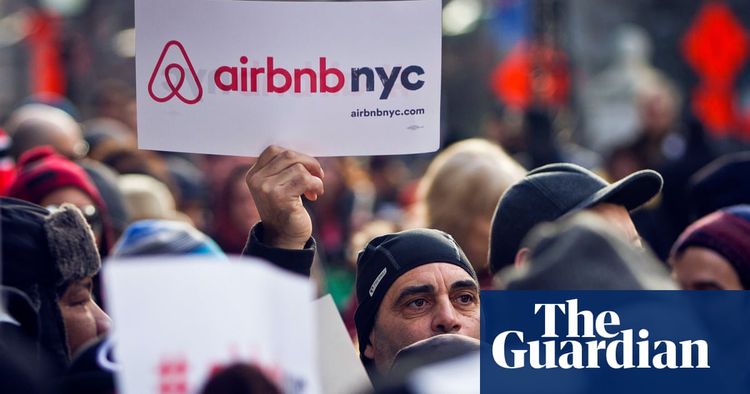Airbnb bookings dry up in New York as new short-stay rules are introduced

Home-sharing platform Airbnb announced that it was compelled to cease accepting certain bookings in New York City following the introduction of fresh regulations concerning temporary accommodation rentals.

The fresh regulations aim to put an end to the chaotic situation in which property owners and tenants have been letting their apartments to tourists or other visitors on a temporary basis, either by the week or by the night. Supporters argue that this trend has contributed to an increase in the demand for housing in districts that are already lacking sufficient accommodation options.
In the latest arrangement, rentals that last less than 30 days can only be permitted if hosts officially enroll with the city. Additionally, hosts must make a pledge to remain physically present in the property throughout the entire rental period and must share living spaces with their guest. The limitation also extends to disallowing more than two guests at once, thereby effectively preventing families from accessing these accommodations.
Online rental platforms like Airbnb and VRBO are prohibited from facilitating bookings for hosts who are not registered. However, by the beginning of this week, only a small number of hosts had managed to complete the registration process successfully. The city has disclosed that out of the 3,800 applications received, it has so far granted approval to just below 300 hosts.
Authorities and advocates for affordable housing who had advocated for the limitations argue that they are crucial in preventing apartments from transforming into makeshift lodging establishments.
Murray Cox from Inside Airbnb, an organization focused on promoting adequate housing, expressed his viewpoint that residential apartments in New York City should strictly serve their intended purpose of accommodating residents. The group diligently gathers information regarding Airbnb's influence in various cities globally.
Airbnb has taken a stand against the regulations in a legal battle, claiming they were practically a prohibition and would negatively impact travelers seeking cost-effective lodging options.
The new regulations have been labeled as detrimental by Theo Yedinsky, the corporate's director of global policies. He argues that these alterations will have a negative impact on numerous residents of New York City's outer boroughs, as well as small enterprises, who heavily depend on home sharing and income generated by tourism to make their financial situations more manageable.
He stated that the city is effectively conveying a message to numerous potential visitors, who will now encounter a decrease in available lodging choices upon visiting New York City: "You are not greeted with open arms."
However, the company has been compelled to adhere to the recent regulations. They mentioned that starting from 21st August, they have ceased accepting new temporary bookings from hosts who haven't furnished a city registration number or evidence of ongoing registration. Airbnb further states that once the city's verification system is completely functional, no temporary listings will be permitted on their platform without a registration number.
Just back in January, AirBnb boasted a whopping 38,500 non-hotel listings in New York City. Some hosts who owned smaller homes expressed their dissatisfaction, claiming that they were being treated unjustly and categorized together with bigger apartment buildings.
The city implemented the regulations in January of the previous year, however, they were delayed due to legal proceedings until the recent month.
The rise of online platforms for rental listings provided individuals with increased choices for accommodations in New York. It also proved to be a profitable opportunity for residents who rented out their homes while they were away on vacation. However, this trend has also sparked grievances regarding the limited availability of housing in residential areas, as these spaces often get reserved by tourists.
Everyday renters expressed their frustration regarding buildings that unexpectedly started resembling hotels, with unfamiliar people roaming the hallways and occasional parties occurring in leased apartments. Opportunistic buyers swiftly acquired units in condo buildings or even entire townhouses, only to profit immensely by engaging in nightly rentals, despite the prohibition imposed by legislation.
"In accordance with the city's longstanding regulations, registration provides a straightforward process for hosts and ensures the safety of travelers by preventing them from staying in illegal and hazardous accommodations. Additionally, it puts an end to the excessive growth of unauthorized short-term rentals," stated Christian Klossner, the executive director of the city's office responsible for enforcing these regulations.
Following the recent legal ruling, Airbnb has issued instructions to hosts in New York City, advising them to either enroll with the city or consider accommodating guests for extended periods if feasible.







































































